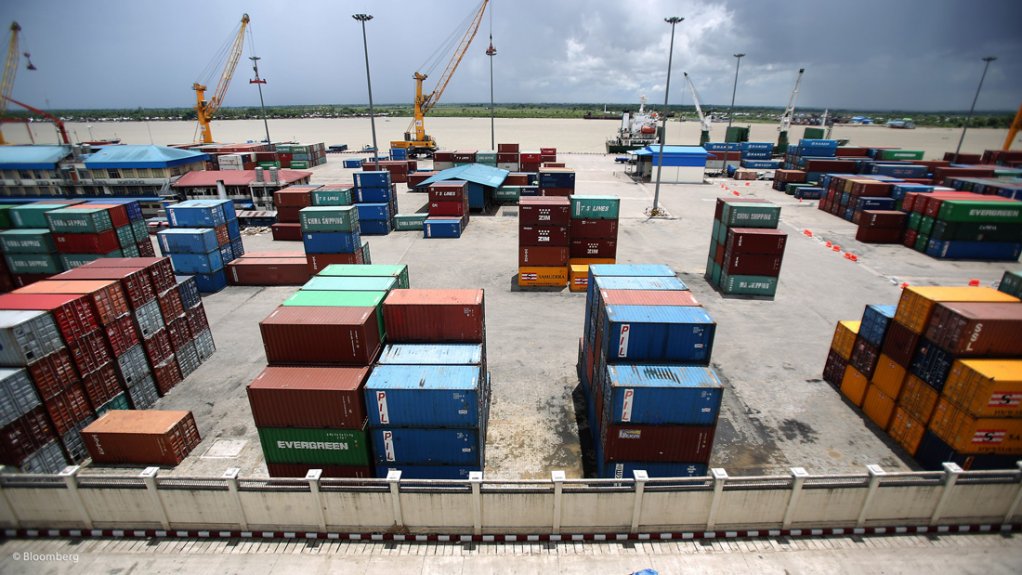/ MEDIA STATEMENT / The content on this page is not written by Polity.org.za, but is supplied by third parties. This content does not constitute news reporting by Polity.org.za.
South Africa can overcome the blockages to an inclusive productive economy with the recognition that manufacturing, with its multiplier effects, is critical to inclusive growth and job creation.
This is according to Trade and Industry Committee Chairperson, Ms Joan Fubbs. She was speaking on the first day of a three day-colloquium on beneficiation. This colloquium forms part of an ongoing oversight over the implementation of the revised Industrial Policy Action Plan (IPAP), which started in the Fourth Parliament. The Committee had found that import parity pricing and high administered prices had constrained the development of the manufacturing sector.
All of the stakeholders who participated actively shared the view that an inclusive expanding economy would be elusive until the destructive monopoly pricing of mineral feedstock was effectively addressed, high administrative input costs tackled and the implementation of the industrial policy was undertaken through a co-ordinated approach among the various government Departments and that regulation and competition policy was practised in a complementary and mutually reinforcing manner.
Value addition, particularly of mineral resources and other natural resources, is directly correlated with job creation, especially in downstream value addition. Several stakeholders pointed out that import parity pricing and other factors limited opportunities for expanded beneficiation. The Competition Commission of South Africa emphasised that “the advantages of those controlling minerals and production of derivative products are not flowing through competitive prices for downstream industries”.
The Industrial Development Corporation (IDC) underlined the accelerated shift towards a rapid sustainable and inclusive development in the primary beneficiation of raw materials and the critical need to develop industry wide value chains. The IDC said they totally supported the Department of Trade and Industry’s (DTI) “call for increased local content in components, vehicles, and the establishment of a multi RSA OEM automotive assembly plant,” which targeted 1500 jobs and could reduce import leakages. It also pointed to the resuscitation of foundries and Tool, Die and Mould (TDM) industries by 2020 to further support beneficiation initiatives.
Three issues needed to be considered when addressing industrialisation. The strengthening of material resources as the building blocks for industrial development, the need for the Committee to check on where South Africa fitted into the global value chains and thirdly given our commitment to development the need to diversify and focus on exports where the country has a export competitiveness.
Ms Fubbs said the ensuing discussion was robust and proposals included the introduction of domestic pricing controls on strategic minerals, alignment of beneficiation strategies, a review of licensing conditions and recognition of the role infrastructure played, and an industrial policy implementation task-team that will ensure that there is coordination of beneficiation efforts among the stakeholders.
“There is a clear link between behaviour of upstream firms and the costs of downstream firms,” said Professor Simon Roberts of the University of Johannesburg. He added that with respect to plastics, the cost of polymers in South Africa, although not the only input was the largest costing 40% to 60% and had a serious impact on price competitiveness.
Independent expert, Dr Paul Jourdan, called for the introduction of a “resource Rent Tax” (50% on returns above normal ROI) as well as the “amendment of the Mineral and Petroleum Resources Development Act (MPRDA) objectives to include maximisation of the developmental impact of mining to allow for back and forward linkages conditionality and minimum RDI spend.”
The South African Mining Development Association called for unencumbered ownership that would realise through the alignment of the BBBEE with the Mining Charter the vision of the National Development Plan for 2030. It also pointed to the need to address Transfer Pricing to encourage the aggressive pursuit of a developmental pricing agenda.
Currently, South Africa’s largest exports are mineral resources, yet the country imports processed or finished goods manufactured from these very same resources but at substantially higher prices. It is critical that the country changes this reality. Said Ms Fubbs: “We need to move up the value chain and add value to the country’s mineral and natural resources. Mineral resources have been identified as potential key drivers of industrialisation”. Mineral resources include polymers, ferrous metals, platinum group metals and titanium; while natural resources include primary agricultural, forest and fishery products. However, other areas of value-addition are also possible through technological developments and the advancement of the knowledge economy in advanced manufacturing sectors such as the software and aerospace industries.
This conversation on beneficiation continues as the Committee goes on day 2 of the colloquium. The focus will be on iron ore-steel and polymer value chain. Participants will mainly be companies in this sector.
EMAIL THIS ARTICLE SAVE THIS ARTICLE
To subscribe email subscriptions@creamermedia.co.za or click here
To advertise email advertising@creamermedia.co.za or click here











